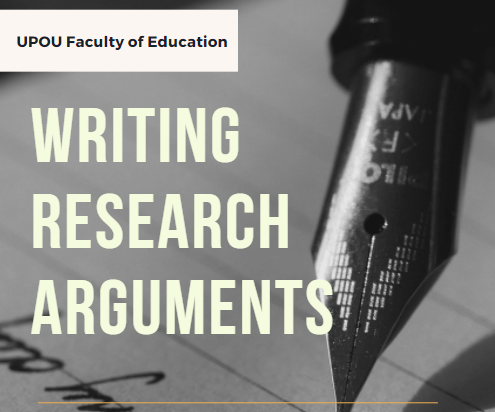Planning a Structured Argument
The first part of the process in writing is planning out your research arguments. This part of the process includes the initial gathering of related literature to be able to form ideas for arguments. It is here that one starts the cyclical process of writing research arguments. First, you read related literature, take notes of relevant details, then, synthesize the literature, plan the structure of your ideas, finally write, and then go back to reading again. During this process, Dr. Eacersall highlights the importance of discussing your ideas with trusted people such as academic advisers or colleagues. This exchange of ideas with other people may quicken the process of writing.
Organization of Data and Use of Tools
Many people use manual methods of organizing data or connecting ideas. Dr. Eacersall introduced different digital means of organizing and manipulating information. He suggested the use of mind mapping tools like XMind, FreeMind, Vue, and Cmap; reference and information management software like Nvivo, and even an effective use of Microsoft Excel. Although manual methods such as jotting ideas down on a notebook or sticky notes have proven to be effective, the use of software to organize data may aid researchers in the formulation of ideas.
A clear structure in the writing of one’s research arguments ensures that it is easy to identify the supporting points as well as the thesis statement of the argument itself. Much of what makes an effective structure for writing a good research argument also relies on good basic paragraph structure. Dr. Eacersall identified the main elements of the basic structure of a paragraph S E E L that is:
Statement of the main idea
Explanation or clarification of any points
Evidence or Analysis of the evidence to support the argument
Link or a why summary statement This should link the paragraph into the next paragraph or connect back to the main argument or thesis statement.

How do we improve in writing research arguments?
Dr. Eacersall ended his talk with tips on how to improve in writing research arguments. As with any writing endeavor, it is best to improve by just keeping on writing. Secondly, he highlights the importance of both giving and receiving feedback. Receiving feedback from trusted colleagues, peers, and advisers will definitely help to improve one’s writing. Equally important is giving feedback on the work of others. In this way, one would be able to see how other people think, write, and formulate ideas. This could help or influence you in your own research in the future. Dr. Eacersall shared a few links to some resources that might help in writing your research arguments or just your writing in general.
Written by Isabel Arellano
